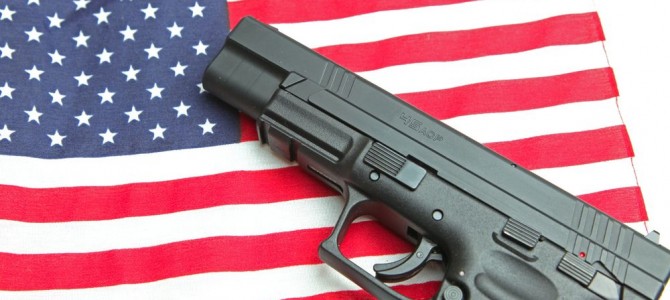
In the wake of the Parkland tragedy, America is searching for the cause of this senseless attack on innocent children. Gun laws, a broken mental health system, and “toxic masculinity” are just a few of suggested causes of our nation’s epidemic of mass gun violence. I’d like to focus on the third topic. Toxic masculinity is not plaguing our society — a lack of masculinity is.
Stories of heroism by every day people always emerge from tragedies like last Wednesday’s, providing a side-by-side comparison of authentic masculinity versus a perverted, caricaturized version of what it means to be a man.
Aaron Feis, an assistant football coach at Parkland High School and the father of a young daughter, stepped in front of a hail of bullets fired at children by a coward, sacrificing his life to save theirs. Feis could have run, rationalizing his flight because others depended on him back home, but instead he used his body as a shield and absorbed an attack meant for those more vulnerable than he was. “‘He shielded two kids from being shot. He took the bullets himself,'” student Julien Decoste, told NBC News. “As I was being escorted out of the building, I had to step over him.”
There were two males in that hallway in Marjory Stoneman Douglas High School on Wednesday afternoon — one behaved like a man, the other did the opposite.
I am not linking any policy or cultural trend to the specifics of this instance or this particular shooter (whose name is not worth mentioning), and it would be simplistic to blame a single cause for the crisis we see today. The copycat factor fueled by wall-to-wall coverage of mass shooters, for instance, likely plays a role to some extent. Nevertheless, any discussion of this crisis must include the cultural rot of masculinity. Since Columbine, a disproportionate number of mass shootings have been committed by males under thirty years old.
In an insightful essay titled “The Revenge of the Lost Boys,” Tom Nichols profiled the men who have committed some of society’s worst crimes over the past decade and a half. From traitors like Edward Snowden and Bowe Bergdahl to racist mass murders like the Charleston church shooter, these Man-Boys have many traits in common: social isolation, delusions of grandeur, and perpetual adolescence. Failed attempts at military service is another theme. In short, “they are not men in any sense of the word that connotes responsibility, restraint, self-discipline, or the other traditional masculine virtues.”
How did we get here? No single factor is to blame, but a few stand out. Our social media culture is breeding a generation of narcissists who have inflated opinions of their own importance, and let the world know it one choreographed Instagram selfie at a time. Over twenty million children are currently being raised by single mothers, to say nothing of the millions more raised by emotionally absent or abusive fathers (nearly every mass shooter did not have his father in his life).
At the same, pop culture and academia are both telling boys that masculinity is “toxic” — that it is something to apologize for and suppress in their interactions with others. Duke University, for example, launched a nine-week “Men’s Project” intended to create “a space of brotherhood and fellowship dedicated to interrogating male privilege and the patriarchy.” The purpose of the program is to revise allegedly outdated views of masculinity and provide supposedly healthier alternatives.
Michael Ian Black responded to the Parkland shooting with a thread declaring that “boys are broken.” Black accurately spots the symptom, but he misdiagnoses its cause, blaming our masculinity crisis on men being “locked into the same rigid, outdated model of masculinity.” In short, Black thinks the solution to our problems is to tell boys to shun traditionally masculine ideals. His tweetstorm earned praise in many corners, and his beliefs are far from unique.
As the #MeToo movement gained steam last October, more than a few men tweeted that the stories made them ashamed of their gender or embarrassed to be a man. What these no doubt heartfelt sentiments miss is that Harvey Weinstein’s behavior was not manly and had nothing to do with masculinity as traditionally understood. In fact, the person who showed authentically masculine traits in the #MeToo saga was Ronan Farrow, who courageously withstood pressure to spike his story while showing true compassion for Weinstein’s victims. Who knows how many women Farrow saved from suffering similar fates in the future. We need more Ronan Farrows and fewer Ashamed Men™.
Many boys intuitively understand the inadequacies of the Michael Ian Black approach and reject it. The problem, however, is that many of them lack authentic alternative role models to turn to. Without a culturally-recognized understanding of masculinity to guide them or father figures to set an example, they drift toward the caricatured versions of masculinity promoted by the alt-right — embracing figures who wax nostalgic about the days when women stayed in kitchens, or hawk recipes for “super serum” semen that women will become addicted to. They end up holding cosplay shields in my current hometown of Charlottesville and chanting about their supposed superiority, despite the fact that they are often single, isolated, and out of shape. Other times, they end up holding an AR-15 in a school hallway.
In sum, the epidemic of mass shootings and sexual violence is not caused by masculinity, but by a warped understanding of it. The problem is not with men as such, but with a cultural shift that allows boys to remain boys well into adulthood. Fixing this cultural problem — or at least changing the way we discuss it — will not eliminate mass shootings, but it may save some Lost Boys drifting in that direction.









